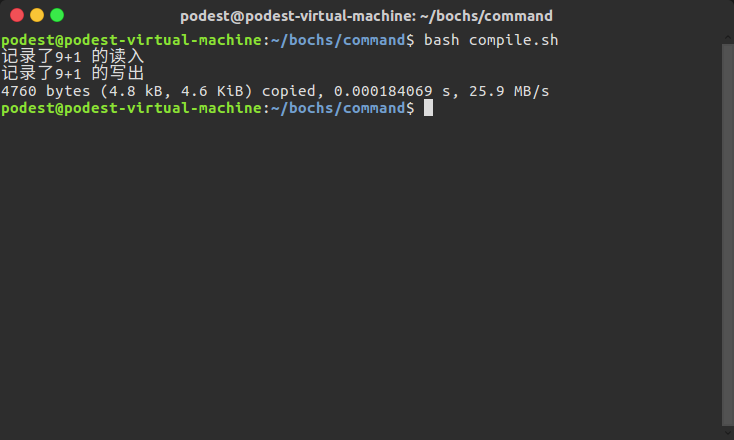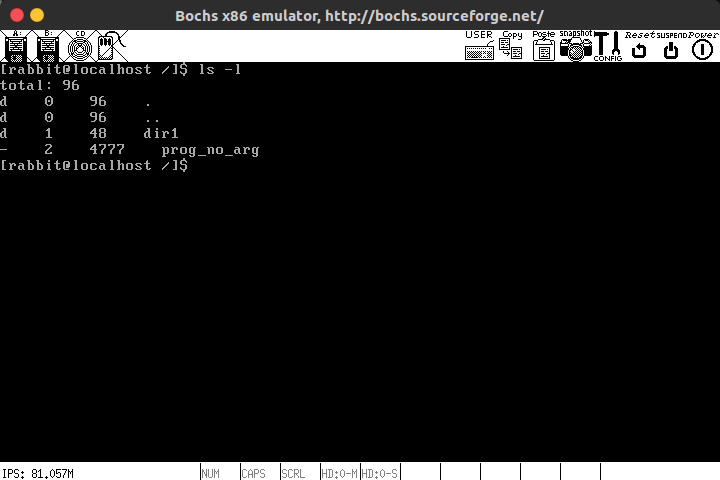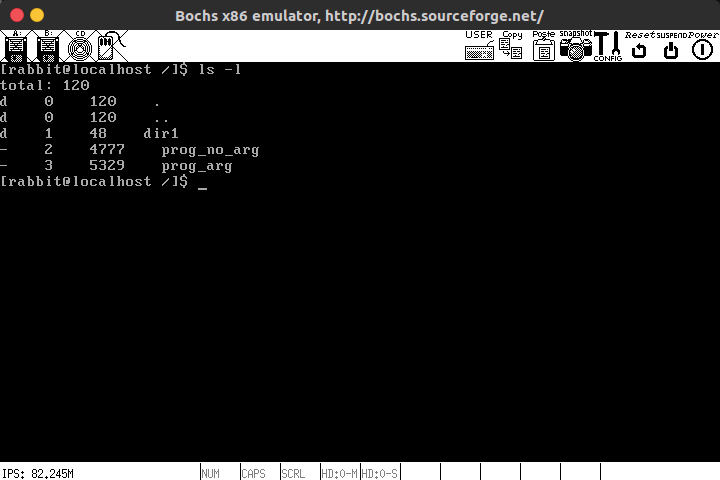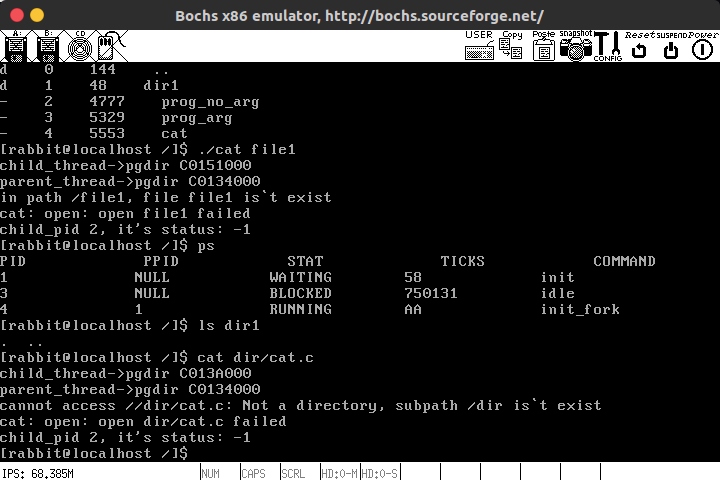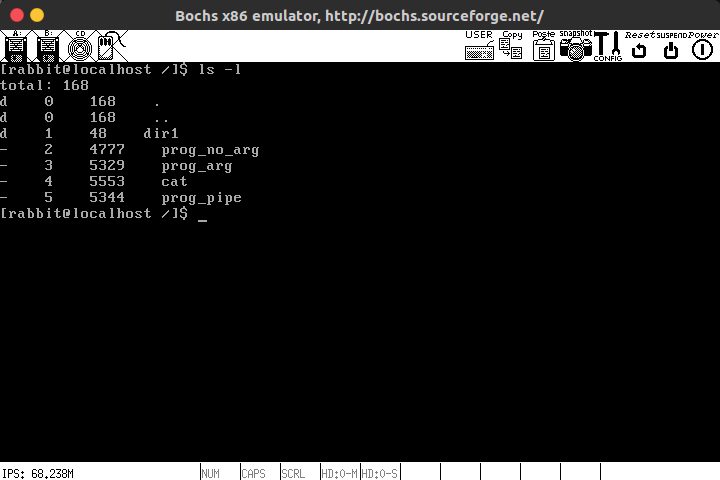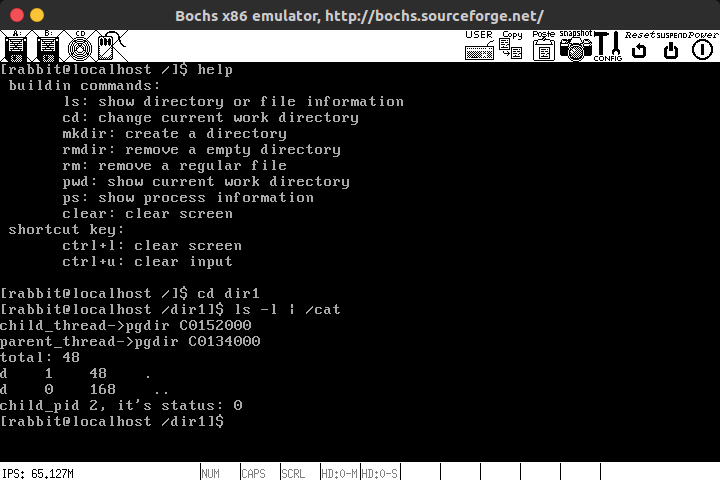1
2
3
4
5
6
7
8
9
10
11
12
13
14
15
16
17
18
19
20
21
22
23
24
25
26
27
28
29
30
31
32
33
34
35
36
37
38
39
40
41
42
43
44
45
46
47
48
49
50
51
52
53
54
55
56
57
58
59
60
61
62
63
64
65
66
67
68
69
70
71
72
73
74
75
76
77
78
79
80
81
82
83
84
85
86
87
88
89
90
91
92
93
94
95
96
97
98
99
100
101
102
103
104
105
106
107
108
109
110
111
112
113
114
115
116
117
118
119
120
121
122
123
124
125
126
127
128
129
130
131
132
133
134
135
136
137
138
139
140
141
142
143
144
145
146
147
148
149
150
151
152
153
154
155
156
157
158
159
160
161
162
163
164
165
166
167
168
169
170
171
172
173
174
175
176
177
178
179
180
181
| #include "exec.h"
#include "../thread/thread.h"
#include "stdio-kernel.h"
#include "../fs/fs.h"
#include "string.h"
#include "global.h"
#include "memory.h"
extern void intr_exit(void);
typedef uint32_t Elf32_Word, Elf32_Addr, Elf32_Off;
typedef uint16_t Elf32_Half;
struct Elf32_Ehdr {
unsigned char e_ident[16];
Elf32_Half e_type;
Elf32_Half e_machine;
Elf32_Word e_version;
Elf32_Addr e_entry;
Elf32_Off e_phoff;
Elf32_Off e_shoff;
Elf32_Word e_flags;
Elf32_Half e_ehsize;
Elf32_Half e_phentsize;
Elf32_Half e_phnum;
Elf32_Half e_shentsize;
Elf32_Half e_shnum;
Elf32_Half e_shstrndx;
};
struct Elf32_Phdr {
Elf32_Word p_type;
Elf32_Off p_offset;
Elf32_Addr p_vaddr;
Elf32_Addr p_paddr;
Elf32_Word p_filesz;
Elf32_Word p_memsz;
Elf32_Word p_flags;
Elf32_Word p_align;
};
enum segment_type {
PT_NULL,
PT_LOAD,
PT_DYNAMIC,
PT_INTERP,
PT_NOTE,
PT_SHLIB,
PT_PHDR
};
static bool segment_load(int32_t fd, uint32_t offset, uint32_t filesz, uint32_t vaddr) {
uint32_t vaddr_first_page = vaddr & 0xfffff000;
uint32_t size_in_first_page = PG_SIZE - (vaddr & 0x00000fff);
uint32_t occupy_pages = 0;
if (filesz > size_in_first_page) {
uint32_t left_size = filesz - size_in_first_page;
occupy_pages = DIV_ROUND_UP(left_size, PG_SIZE) + 1;
} else {
occupy_pages = 1;
}
uint32_t page_idx = 0;
uint32_t vaddr_page = vaddr_first_page;
while (page_idx < occupy_pages) {
uint32_t* pde = pde_ptr(vaddr_page);
uint32_t* pte = pte_ptr(vaddr_page);
if (!(*pde & 0x00000001) || !(*pte & 0x00000001)) {
if (get_a_page(PF_USER, vaddr_page) == NULL) {
return false;
}
}
vaddr_page += PG_SIZE;
page_idx++;
}
sys_lseek(fd, offset, SEEK_SET);
sys_read(fd, (void*)vaddr, filesz);
return true;
}
static int32_t load(const char* pathname) {
int32_t ret = -1;
struct Elf32_Ehdr elf_header;
struct Elf32_Phdr prog_header;
memset(&elf_header, 0, sizeof(struct Elf32_Ehdr));
int32_t fd = sys_open(pathname, O_RDONLY);
if (fd == -1) {
return -1;
}
if (sys_read(fd, &elf_header, sizeof(struct Elf32_Ehdr)) != sizeof(struct Elf32_Ehdr)) {
ret = -1;
goto done;
}
if (memcmp(elf_header.e_ident, "\177ELF\1\1\1", 7) \
|| elf_header.e_type != 2 \
|| elf_header.e_machine != 3 \
|| elf_header.e_version != 1 \
|| elf_header.e_phnum > 1024 \
|| elf_header.e_phentsize != sizeof(struct Elf32_Phdr)) {
ret = -1;
goto done;
}
Elf32_Off prog_header_offset = elf_header.e_phoff;
Elf32_Half prog_header_size = elf_header.e_phentsize;
uint32_t prog_idx = 0;
while (prog_idx < elf_header.e_phnum) {
memset(&prog_header, 0, prog_header_size);
sys_lseek(fd, prog_header_offset, SEEK_SET);
if (sys_read(fd, &prog_header, prog_header_size) != prog_header_size) {
ret = -1;
goto done;
}
if (PT_LOAD == prog_header.p_type) {
if (!segment_load(fd, prog_header.p_offset, prog_header.p_filesz, prog_header.p_vaddr)) {
ret = -1;
goto done;
}
}
prog_header_offset += elf_header.e_phentsize;
prog_idx++;
}
ret = elf_header.e_entry;
done:
sys_close(fd);
return ret;
}
int32_t sys_execv(const char* path, const char* argv[]) {
uint32_t argc = 0;
while (argv[argc]) {
argc++;
}
int32_t entry_point = load(path);
if (entry_point == -1) {
return -1;
}
struct task_struct* cur = running_thread();
memcpy(cur->name, path, TASK_NAME_LEN);
struct intr_stack* intr_0_stack = (struct intr_stack*)((uint32_t)cur + PG_SIZE - sizeof(struct intr_stack));
intr_0_stack->ebx = (int32_t)argv;
intr_0_stack->ecx = argc;
intr_0_stack->eip = (void*)entry_point;
intr_0_stack->esp = (void*)0xc0000000;
asm volatile ("movl %0, %%esp; jmp intr_exit" : : "g" (intr_0_stack) : "memory");
return 0;
}
|
